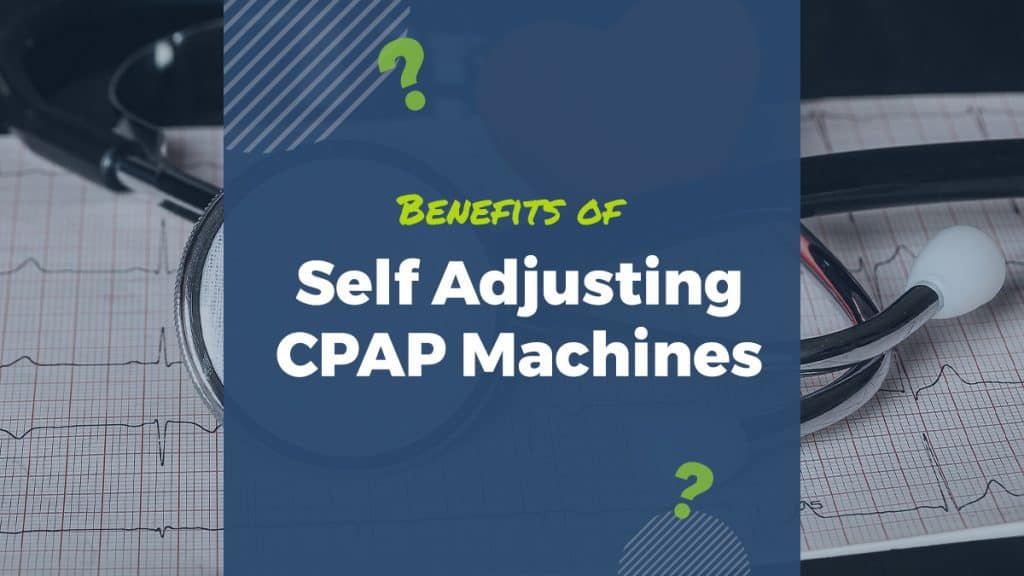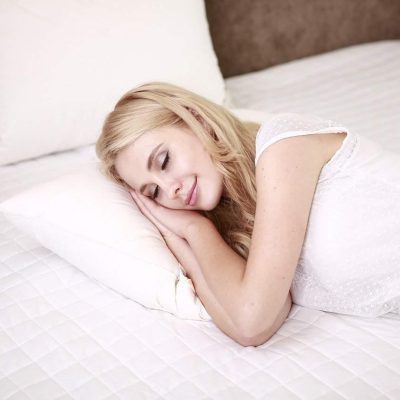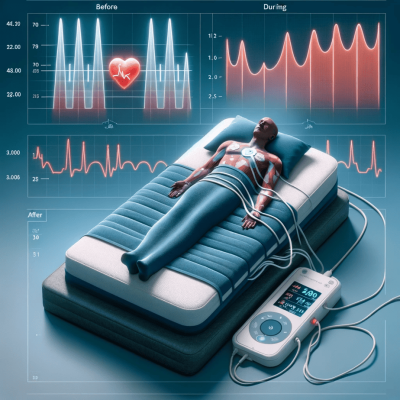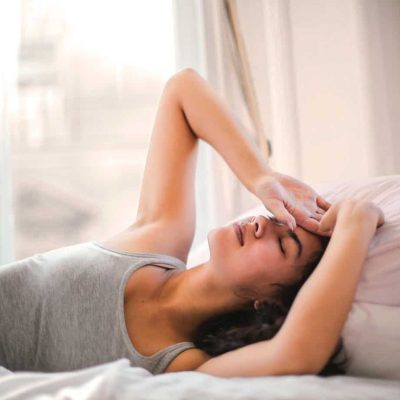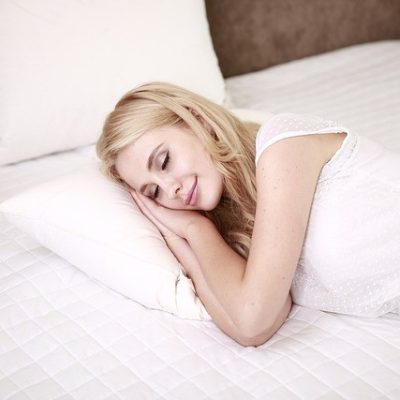If you have been diagnosed with sleep apnea, your doctor must have instructed you to use a CPAP machine. And your initial experience with your CPAP therapy might be a bit overwhelming. We understand that sleeping with a mask on, being tied to a gadget with tubes and straps might be too much for a good night’s sleep. But CPAP therapy is essential for sleep apnea.
Table of Contents
ToggleHow do CPAP machines help sleep apnea?
Obstructive sleep apnea, the most common form of apnea, causes minor breathing pauses. It is likely that your breathing stops up to 30 times or more within an hour. However, it is nothing to fear as your CPAP, which stands for continuous positive airway pressure, maintains constant airflow, which stops the air passage from blocking. CPAP machines come with a pump that sends air into the tube and through it into the mask over your face. If you are unsure about type of CPAP devices, don’t hesitate to check out the WellAwareSystem CPAP machine buying guide.
What do I need to know about my CPAP air pressure?
The CPAP machines come with special setting features that need adjusting. Your doctor must have adjusted the pressure settings specifically for you. The physician decides this setting through the apnea-hypopnea index (AHI). This feature helps to maintain optimal pressure, which ranges from 6cm to 14cm of water for most patients. Most CPAP machines are capable of offering air pressure from 4 to 20cm of water. Whereas, some specialized machines can deliver up to 25 tp 30cm of water.
To get a better idea of the intensity of airflow, you can imagine sucking water from a 10cm straw that is positioned just at the surface of the water. Another example of comparison can be human speech, which requires 7cm/H2O pressure. The average CPAP pressure is 10cm/ H2O.
What Should My CPAP Pressure Be?
Even though CPAP therapy can tend to be a bit uncomfortable in the beginning, you will ease into it gradually. However, the question what exactly should my cpap pressure be often comes up, especially when using a CPAP machine with a higher airflow setting can be uncomfortable. It is a sign that you need to see a sleep physician and get the pressure titrated up or down. Similarly, the pressure can also be too low, and you might find that your snoring has not lessened with the sleep apnea treatment.
Signs of low CPAP pressure
Your air pressure is low if you feel trouble in exhaling, whereas you can inhale without any problem. You may also gasp for air by opening your mouth while sleeping, your spouse or sleeping partner will be more aware of such signs. It happens because, at low CPAP pressure, one tends to feel a bit air-hungry and tries to gasp for air through the mouth rather than depending on the CPAP.
Another way to discern that your pressure is low or not is the AHI index. If the index shows that you have five or more apnea events in an hour, then your CPAP machine is not working like its supposed to.
Signs of high CPAP pressure
If your CPAP pressure is higher than your requirement, then you may find your ear leaking fluid. In general, you have to pay attention to how you feel during the night and in the day, and relay it to your physician or sleep therapist. They will be able to interpret the sign and tell you if your CPAP pressure is too high.
What Happens if Your CPAP Pressure is Too High?
The CPAP pressure setting is an important detail. It may seem slightly minor, but what exactly happens if your CPAP pressure is too high is somethign all users should be aware of. It ensures that your passage remains open throughout the night, and you do have trouble in inhaling and exhaling. Apart from the genuine discomfort caused by a too low or too high CPAP pressure, there are various side effects associated with it.
These include:
- leaks from your mask
- fluid leaking through your ear
- gasping for air
- mouth breathing, dry throat, and mouth
- tiredness and fatigue throughout the day
- Apnea index over 5, more than five apnea events in an hour
- association with increased eye pressure, glaucoma
- can trigger central sleep apnea
Can I adjust my CPAP pressure?
Well, a simple answer to this is no; you cannot. It is not at all recommended for the patients to adjust the settings themselves.
During your initiation, you must have gone through a process called titration, which allowed you to find the perfect pressure setting for you. If you are having trouble with the present setting, you can seek the help of your therapist and again arrive at a pressure level that suits you now.
A common misconception about CPAP is that the pressure is related to the severity of your apnea. It means that people who have had apnea for an extended time might find higher CPAP pressure more suitable. However, that is not at all the case, CPAP pressure is determined by a number of factors including but not limited to age, gender, weight, and general health condition.
Self-adjusting CPAP machine
Another solution to deal with the problem of unsuitable pressure is opting for an APAP machine like the Resmend S9 Auto. APAP stands for auto positive air pressure and works on the same principle as the CPAP machines. One added advantage the APAP machines have over the CPAP machines is that they automatically adjust the pressure setting every time you breathe.
This way, you do not have to worry about your pressure is too high or too low as the APAP will adjust it. It is why an APAP machine is sometimes also called a self-adjusting CPAPS or Automatic Titrating Positive Airway Pressure device.
During CPAP therapy, your physician must have chosen a suitable pressure setting for you after titration. However, it is not guaranteed that the pressure that is suitable for you today will also be so tomorrow. Furthermore, your apnea condition changes with your lifestyle, age, weight, and health in general. It is not possible that you know how each of these factors will influence your apnea, making you seek out medical help right at the correct time.
We have already discussed the dangers of CPAP pressure being too high or too low, and the discomfort you have to face because of it. Therefore, it far better for your health as well as comfort that you invest in an APAP device from the start.
Benefits of using an APAP machine
APAP machines work on the same principle as CPAPs, but it has several added benefits to it.
Multiple breathing changes – Some people with sleep apnea tend to have different breathing patterns during a night. APAP machines are better suited in such a scenario than CPAP machines because they can adjust the pressure according to your breathing patterns. CPAP machines maintain a continuous airflow, which might not be suitable for some times of apnea. It is recommended that they move on APAP machines as they come with a built-in algorithm that decides the amount of air the sleeper needs at any given amount of time.
Can work as CPAP as well – It is an added advantage that an APAP can also work as a CPAP machine if you set it a suitable airflow setting. But the same is not valid for a CPAP as it does not have the features of an APAP machine.
Troubled sleepers – APAPs are also better for people who tend to toss and turn during their sleep. This is because if you are a troubled sleeper and tend to move around from a prone position to a supine position, then the chances of having apnea events are increased because of gravity. APAP ‘s algorithm manages the airflow according to your need so that you have an uneventful sleep.
Comfort – Most patients receiving sleep apnea treatment find it a bit claustrophobic. The therapy requires them to wear a mask and sleep in a specific position throughout the night. Sometimes, this becomes too much to bear when the airflow settings are high. The chances of bearing such problems are decreased with the APAP machine as it automatically adjusts.
Accounts for weight changes: As mentioned earlier, your severity of sleep apnea and the specifics of the therapy depends on various factors like your lifestyle, weight, and age. It is recommended that a sleep apnea patient should see a doctor if their weight has increased or decreased by 10% of their original. Since the APAP machines come with an algorithm of their own, they can provide suitable airflow for the therapy automatically.
Alcoholic: If you are an alcoholic or consume alcohol before bedtime, you should choose APAP over CPAP machines. This is because alcohol makes apnea severe; it relaxes the throat muscles and slows down brain response speed. APAP machine can automatically adjust the airflow settings so that your air passage is not blocked.
Works best during flu – When you have the flu or cold, the infection causes inflammation of the throat tissues because of which the air passage is congested. If a person has sleep apnea as well as cold, then the air pressure for the therapy might need to be increased. It is good that the APAP machines would alter the pressure settings and allow you a comfortable night’s sleep.
REM sleep: In the REM sleep stage, the breathing pattern is irregular, the body does not regulate its temperature, and blood pressure also spikes up. This is true for an average person but threatening for someone with sleep apnea. An APAP machine is most suitable in such a scenario because it can automatically adjust the airflow depending on your breathing pattern and sleep stage.

